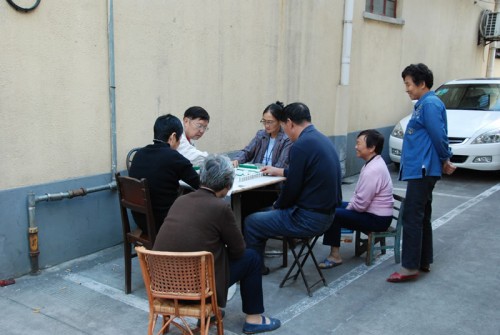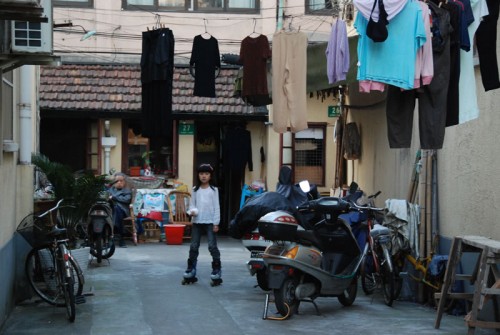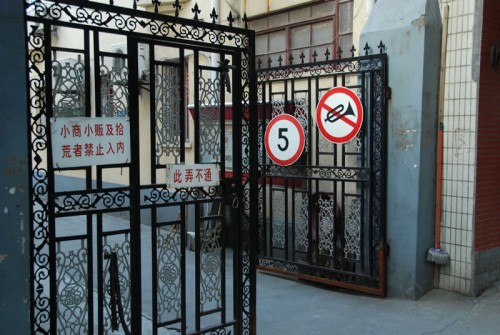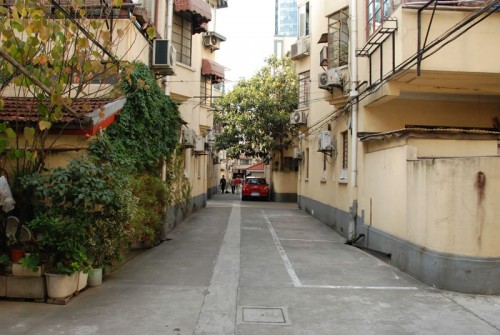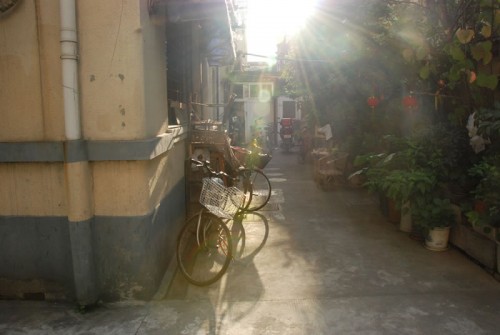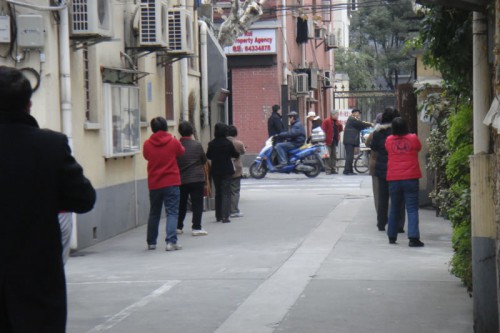In 2006, Oracle Bones was selected as a finalist for the U.S. National Book Award. Ultimately it did not win, but the author, Peter Hessler, should not be the only one to feel disappointed.Oracle Bones contains the essential elements to elevate Hessler to fame – the book covered the U.S. bombing of China’s embassy in Yugoslavia; it talked about preparations for the Beijing Olympics; and it touched on that Square with ‘strong political connotations’. Even if the content, which was full of symbolism and convenient political labels – perhaps the style best suited to aNew Yorker Beijing correspondent – did not manage to penetrate deeply under China’s skin, it was the only proper way to attract a large Anglo-American readership.
By contrast, Country Driving, published in the U.S. in 2010, is more natural, unadorned and restrained. On the whole, it skirts the dirt of politics, dealing instead with issues that strictly speaking aren’t considered to have traditional news value. Hessler relentlessly explores China’s depths, where the silence is so profound it is deafening. It is precisely because he uses no convenient labels or signposts that the essence of this book, which was originally written for the English-speaking world, can perhaps ultimately only be appreciated by a Chinese readership.
After reading reviews of this book in The New York Times, The Washington Post, The Guardian, The Economist and more than a dozen other media, I felt that I might as well not have read them at all. When you first pick up Country Driving there’s the danger that you might mistake it for a book about driving culture or a “road trip” book. One by one, those foreign book reviewers fell into this trap. Peter Hessler himself participated in setting it up. At a lecture for the Asia Society in the U.S., Hessler selected some Chinese driving test questions, featured in the book, and turned them into slides for the talk. For example:
352. If another motorist stops you to ask directions, you should
• A not tell him.
• B reply patiently and accurately.
• C tell him the wrong way.
The U.S. audience saw this and burst into laughter. Civilized people are generous and, in situations like these where a little goodwill isn’t going to make anyone uncomfortable, they laughed, finding humor in the overly-analytical eastern mind. Nonetheless, this kind of humor which stems from cultural differences, however innocuous, is still shallow and, ultimately, unnecessary. On the whole, it distracts from the focus of the book. Its flippancy dilutes Country Driving’s deeper undertones. I don’t believe that I am totally incapable of understanding and appreciating humor. Hessler’s deadpan sense of humor, the so-called dry sense of humor, is clearly evident, but shouldn’t we expect all American non-fiction writers to have this sense of humor? The difference between Hessler and those other now well-known travel writers is not Peter Hessler’s sense of humor, but rather the degree to which he gets entwined with Chinese people, on both a practical and an emotional level.
Indeed, once the car has completed the long, dusty journey that is Country Driving, it would be better described as the thread rather than the theme of the book. It’s a little bit like a necklace: the focus should be on the beads that make up the necklace, rather than on the string that holds them together. If everything that is written about the car is nothing more than the lid of a trap then what is this book really about; in other words, what exactly are the beads that form the necklace? This question is not as easy to answer as it might first appear.
From a structural point of view, the three sections of Country Driving – The Wall, The Village, and The Factory – seem to be in balance, but actually there are enormous differences between the points of departure and the degree of emotional investment in each one. The first part, Hessler’s expedition along the Great Wall, is written using a similar architecture to that of Oracle Bones. Both books employ symbolic Chinese cultural objects as a medium, hoping to use these to measure the evolutionary pulse between the ancient and modern, and add the dimension of time to observations on China. The problem is that these over-simplistic attempts cannot find an echo in the realities of contemporary China. In fact, as Hessler heads west along the ruins of the Great Wall, his experiences lack consistency because his route is mechanical and pre-determined. At Genghis Khan’s tomb he encounters three inebriated cadres who had been at a luncheon banquet and observes them as they tenaciously try to bargain with the ticket collector at the door; at a cheap hostel for truck drivers in Gansu province he learns that in an upstairs room there lives a “post-Soviet version of Sister Carrie” – a Russian prostitute; and at a roadside restaurant in Zhangjiakou he meets a female boss who claims to be the “United Sources of America Inc., Deputy Director of Operations.”… and while these may still be considered interesting snapshots of contemporary China, they have no essential connection with the Great Wall. If Hessler were to arbitrarily choose another route from Beijing to Gansu, he would be just as likely to encounter many of the same things. The Great Wall, this important symbol of Chinese culture, is already entirely disconnected from the realities of today’s China. Country Driving expresses this point fully and convincingly, but surely it’s not worth spending 100 plus pages doing it?
Even though the objectives he sets up may not be practical, Hessler relies on his sharp observation to overcome limitations. The observations he makes, or more accurately, the observations he makes of society, are of two kinds – those that are evident and those that are hidden from view. For an example of the first kind, we can turn to the section where he discusses hiring a car from ‘Capital Motors’: “They never asked where I was taking the Jeep Cherokee. The rental contract specifically forbade drivers from leaving the Beijing region, but I decided to ignore this rule – they wouldn’t figure it out until I returned the jeep with a loaded odometer. In China, much of life involves skirting regulations, and one of the basic truths is that forgiveness comes easier than permission.” On the original English edition that I read on a Kindle, 59 people had already underlined that last sentence. Clearly, those readers were deeply impressed by Hessler’s ability to grasp social norms and models. However, I am more interested in his more subtle observations, which cannot be upheld as judgments, or classified as aphorisms. While driving through Shanxi and Inner Mongolia, it becomes Hessler’s habit to pick up hitchhikers, who turn out to be mostly young women: “… girls who had left the village and were on their way to becoming something else. They were well dressed, often in skirts and heels… They wore… cheap perfume… Invariably they were migrants on a home visit. They worked in factories, in restaurants, in hair salons, and they didn’t say much about these jobs. At first, I couldn’t figure out why there were so many women because in fact the majority of Chinese migrants are male. But this wasn’t a peak travel season… The people I met generally worked closer to home, in provincial cities or good-sized townships. For them, village trips were feasible, and women were more likely to make the effort, because they were attentive to parents and grandparents. When I asked about their packages, they said: ‘Gifts’.” Actually, Hessler blends some explanation for this phenomenon into his narrative. For example, if we go one layer deeper we can analyze further. Firstly, the adult male labor force is extracted from rural areas and this causes a gender imbalance in the countryside; secondly, because of ethical considerations, some young female migrant workers choose to work at a location not too far from their home village; thirdly, the nature of their employment offers the women the chance to visit their families during those holidays other than Spring Festival; fourthly, these women choose to walk at least a part of the journey back home because transport is inconvenient or because of economic considerations. Perhaps we could carry on and analyze this still further, right down to dissecting Chinese society to the most fundamental and microscopic level, but actually this is already deep enough. The observation of these female hitchhikers, seemingly unremarkable in itself, brings together and intertwines many significant and disparate facets of society, from the flow of China’s migrant population, family ethics, working traits, to transportation choices. Because of this, it is very difficult for us to draw a simple conclusion from this observation. Compared with those sections where Hessler discusses why Chinese drivers drive so willfully or why parts of the ruins of the Great Wall are now buried under dirt, his observations of the hitchhikers is a much richer source of information for a Chinese urban readership. This is inevitably the result of a difference in focus between Chinese- and English-speaking readers.
It’s inevitable that, while on the road and following a fixed itinerary, experiences tend to flash by; the traveler doesn’t have time to build up close emotional connections with the people he meets along the way. However, once we get to the second part of Country Driving, the emotional intensity rises sharply. This is because Hessler chooses a fixed location and, with enormous patience, cultivates and maintains a relationship with the place. Later on, this relationship is turned rapidly on its head, with an intensity that probably even surprised Hessler himself.
In 2002, Hessler and an American female friend, Mimi Kuo, rented a country home in a village called Sancha in the foothills of the Yan Mountain range. Although it was only about an hour or two’s drive from Beijing, it was surprisingly behind the times. Some of the book’s richest and most lyrical passages come from his descriptions of Sancha. Among these is an entrancing paragraph, where Hessler recounts how he went picking walnuts with some villagers, lashing the trees’ branches with sticks: “there’s a beauty to the shifting sound and light: the whistling sticks, the fresh leaves floating through the air, the walnuts thudding heavily into the dirt. After it’s over the trees seem to sigh – branches hum softly, still vibrating with the memory of the assault.” However, such tranquility and harmony was to last for only a brief interlude. Just then, Hessler witnesses the petty wrangling of village politics; the enormous impact of the rising tourism on villagers’ lives; and the intense effect of urbanization on the way the villagers thought. “It was all but impossible for people to keep their bearings in a country that changed so fast.”
The story of Sancha revolves around a middle-aged villager surnamed Wei. This intelligent man, dissatisfied with his situation, employs a highly individualistic approach, seizing business opportunities, joining the Party, buying a second-hand car, and fighting for an allowance for his mentally-retarded older brother, although in this he is finally defeated by the village party secretary. Hessler uses Wei and his family to paint an exquisite portrayal of the economictransition, social conflicts, the politics, customs, religion, and emotional relationships in China’srural north. From some angles, it can be regarded as an anthropological study. It’s only when he is with Wei’s young son that Hessler’s feelings begin to seep into his writing, causing him to transgress the detachment required of an anthropologist. The little boy suffers from idiopathic thrombocytopenic purpura and Hessler does everything in his power to help him. He consults with three U.S.-based specialists on the boy’s diagnosis; asks Mimi Kuo to organize for a bed in a top Beijing hospital; and discusses buying blood for the boy via an American contact who works for a pharmaceutical company in Beijing. Hessler angers the doctor in the Beijing hospital by querying the safety of the blood. When he suggests that the blood should be tested for viruses, the doctor replies: “Believe me, you can’t!” Hessler writes: “It disgusted me to hear a doctor say such nonsense.” He shakes with anger. In the book’s entirety, this is the only time that Hessler loses control of his emotions. From this, we can infer the depth of feeling between Hessler and this little boy. However, even more than this, at the exact moment he loses control, we are given the chance to read a realistic account of how an American would handle such a situation, and at the same time it allows us to see to what extent Hessler’s outsider status influences the fate of the people he writes about. This child is very lucky, not only because there is a person who cares about his health, but because that person has the ability to mobilize resources which the average person cannot. The issue is that at that critical juncture, Hessler’s first thought is to use his contacts instead of following the rules. Of course, such a kind impulse is understandable, even moving, but when Hessler mocks drivers on wChina’s highways who do not obey traffic regulations, does he ever consider that there might be a deeper institutional background as to why Chinese people are unwilling to follow rules? In China, what determines whether someone decides to first use their connections rather than abiding by regulations? Why, at that critical moment, does Hessler fail to follow the sacred American value of integrity? These questions are more worthy of our serious thought than the spontaneous expression of one person’s kindness.
If we say that the Sancha narrative is closer to Hessler’s style in his first book, River Town, then Country Driving’s third part, namely the section that centers on Lishui in Zhejiang province, allows Hessler to really bring his strengths into play. On one level, he acts just like a novelist, choosing a base from which to build up close relationships with other people, and meticulously describing everything. On another level, he is like a journalist, traveling all around the area, capturing fragments of life in order to substantiate and enrich his partial understanding of the place and, to a certain extent, to build and perfect a bigger picture from these snapshots.
It is on the side of a road that Hessler first meets the boss of a private enterprise in Lishui specializing in making bra-strap adjustment rings. Thereafter he often visits the factory, eating and living with the staff. He gets involved with the factory preparations, the installation of equipment, the production launch, and the factory’s relocation. His intense level of interest in the factory even causes the boss to go so far as to suspect at one point that Hessler is “an undercover competitor”. Hessler gives his readers, as The Economist book review puts it, the chance to be “a fly on the wall” and observe their every move and word. Here, Hessler takes our breath away by recounting the subtle twists and turns of human nature and the different shapes and shades of that society. We cannot help but admit that this is the first time we have read such a profound depiction of factory workers in contemporary China.
Whatever way we choose to summarize this section, it is inevitable that we will sacrifice some richness of detail, and it’s precisely that detail that is the most precious component of the narrative. I would just like to talk about what struck me the most, that is the alienation of workers from their work, and how work has become disassociated from the worker. Fifteen-year old Tao Yufeng, a female employee at the bra ring factory, is very nimble with her hands. She handles the bras’ underwire. “She wore a thimble on her left thumb, and the metal clicked each time she inserted another wire into the spring. Clickclickclickclick – the sounds came steady as a metronome, as fast as I could count. One afternoon, I watched Yufeng prepare thousands of wires… often she worked 10 hours straight on a single breast size. She could answer my questions without pausing or looking up.” Tao Yufeng says: “To be honest, I often have a peaceful feeling. I work alone and there’s nobody to bother me. I don’t think about anything in particular. If I try to think about something specific, then I don’t work as fast. So I just try to keep my mind empty.” It is difficult to say exactly how bad these working conditions are, but I feel that there is something suffocating behind the serenity. At a local artists’ workshop which copies American and European paintings and exports them overseas, Hessler asks a female painter: “Did you like to draw when you were little?” She curtly replies: “No, I didn’t like it one bit.” Hessler writes: “She never painted anything for fun – when I mentioned the possibility, she looked at me like I was crazy… I asked which of her paintings she liked best, and she said, ‘I don’t like any of them.’ She had a similar response when I inquired if she admired the work of any famous artists, like Monet and Van Gogh. ‘I don’t have a favorite,’ she said. ‘That kind of art has no connection at all with what we do.’ ” There is no more vivid expression of “alienation” than this. There has been a great deal of discussion on the many different costs incurred during the course of China’s modernization, but one cost, the alienation of people, has seldom been raised. If emptiness is the result of modernization then what is the point of modernization at all?
Hessler paints many delicate portrayals of this emptiness in people’s lives and in society. His conclusions are frequently so accurate that they are heartbreaking. “In a Chinese boomtown, though, it’s all business: factories and construction supplies, and cell phone shops… entertainment options appear instantly but social organizations are rare. No private newspapers, no independent labor unions… Religion might flourish at the individual level, but institutions are weak… There weren’t any law firms or nonprofit organizations. Police and government cadres were almost as rare… ” Hessler points out that some Chinese people have become good at making plans and adjusting their lives “but it would take another major step for such personal lessons to be applied to society-wide issues,” “often I sensed that China needed to reach a point where the middle and upper classes felt like the system prevented them from succeeding.” Is China anywhere near to developing to this point? Do the middle and upper classes already have this feeling? Perhaps it’s not difficult to answer this question; we just need to understand that it won’t necessarily do any good to speak it out aloud.
The Pareto improvement may be considered the ideal model of social evolution. This is one where any change benefits at least one person in society and harms no one. However, China’s many changes, especially those that have taken place in the countryside, are not the kind of changes to inspire optimism whatever way you look at them. They have harmed many people while the minority, who have benefited, don’t live in the countryside. No one but the company bosses and the developers is clapping for joy, while the rural population physically shoulders these almost unendurable tumultuous changes. Who should be made accountable for these developments and provide proof of their legitimacy?
Sometimes Hessler can’t help a certain dispirited tone: “In a drive-by town, I felt like a drive-by journalist, listening to sad stories before I got back on the expressway.” The problem is Hessler can leave, whereas we cannot. When we read Hessler’s book is it in order to comprehend this place, understand this place, change this place, or to say, don’t let this place change in the same way?
Even if you know that in the Chinese translation almost three pages of content beginning with the second paragraph on page 194 has been deleted; even if you know that much of the book’s language has been quietly made more moderate; even if you know that several of the sentences have been translated incorrectly; you should still be thankful that this book was published in China. Our first thanks should go to the author – Peter Hessler, a great China watcher and a long-time friend of the Chinese people. As for who is included and who is not included by the words “Chinese people”… I think you know.
Translated by Lucy Johnston
via http://en.chutzpahmagazine.com.cn/EnMagazineTextDetails.aspx?id=62
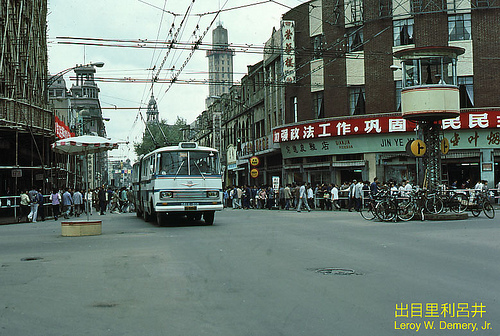





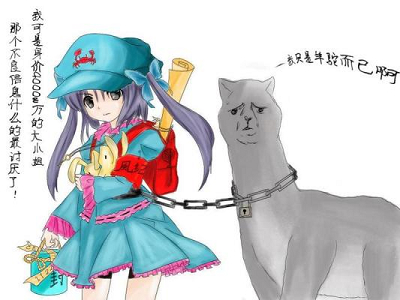
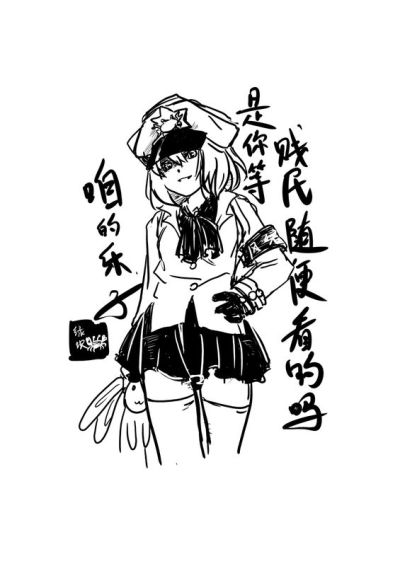

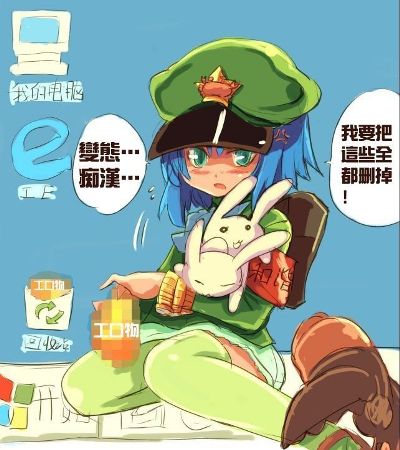
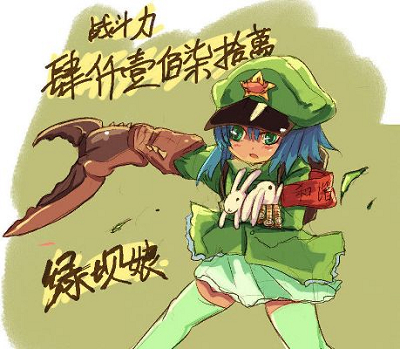

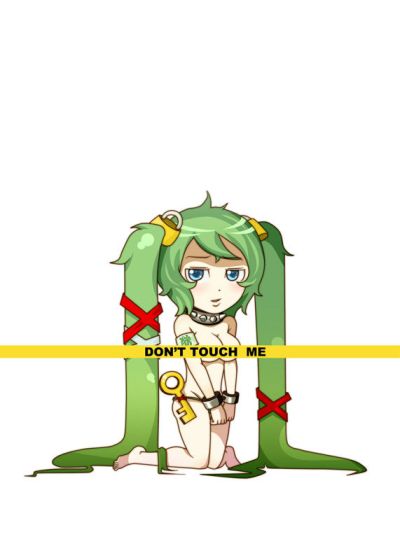
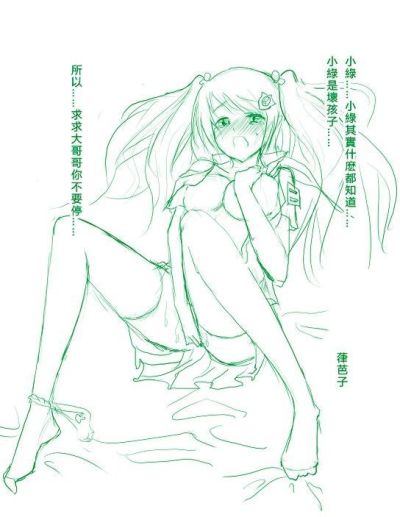
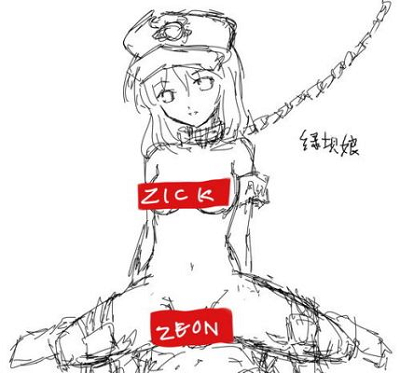
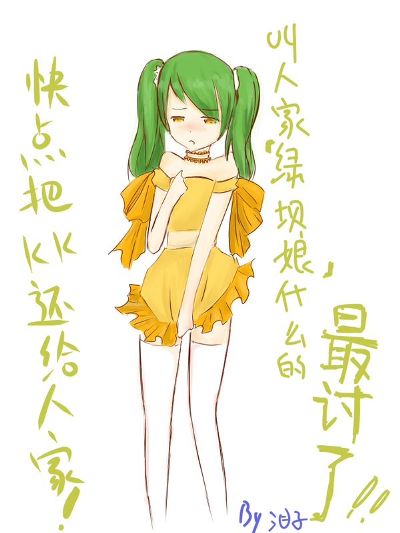

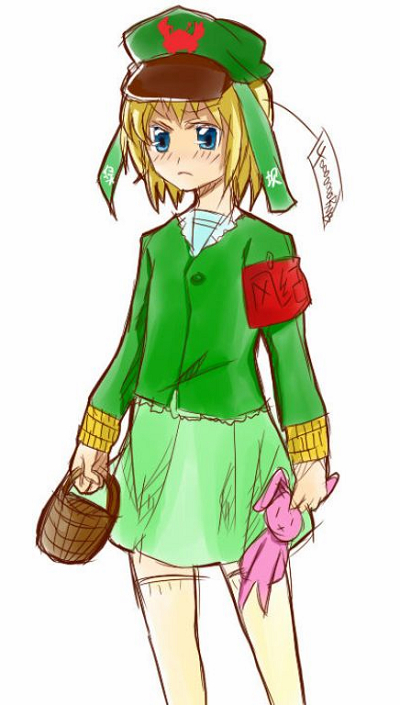
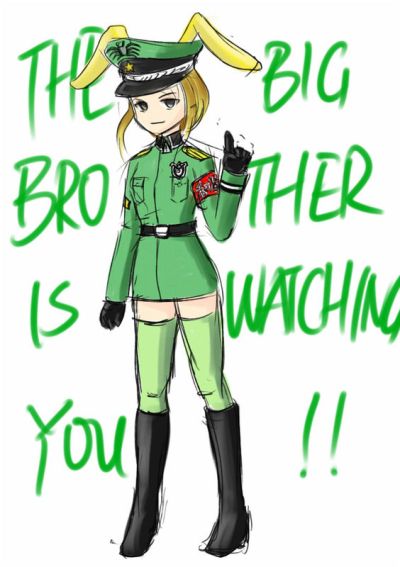
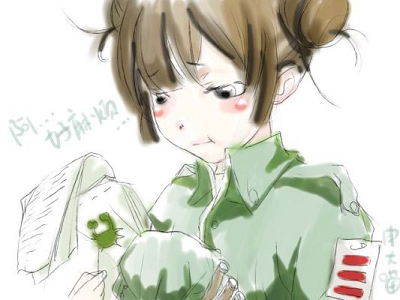
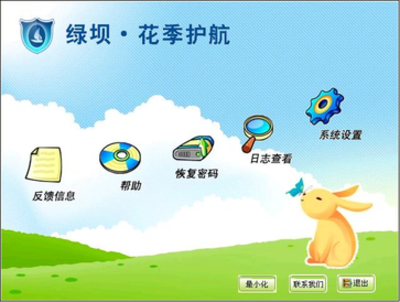

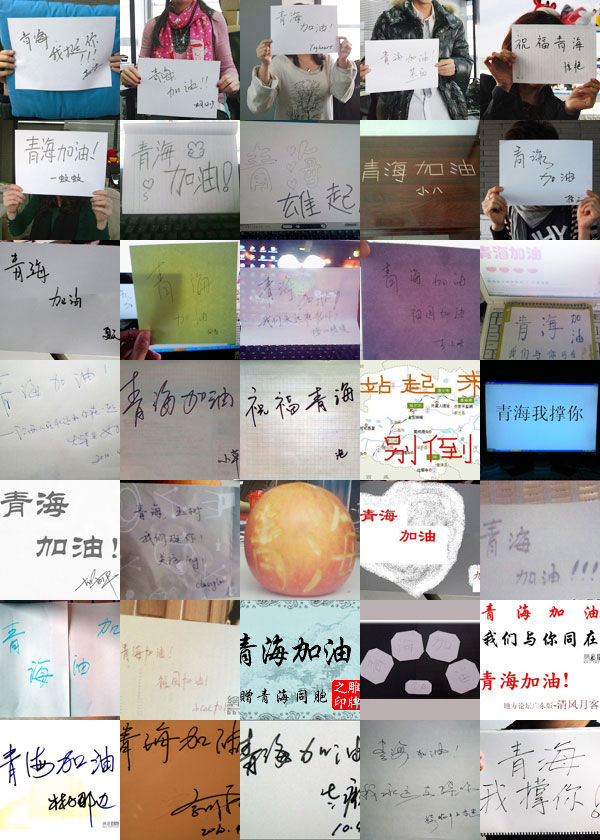
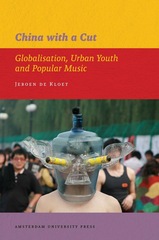
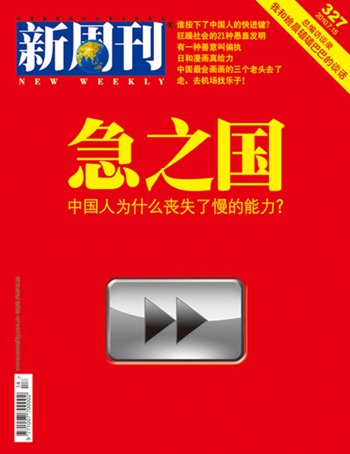

![[POWER3]](http://sg.wsj.net/public/resources/images/RV-AA828_POWER3_NS_20101119221224.gif)

